German Research Chair @AIMS Ghana – Online Public Lecture
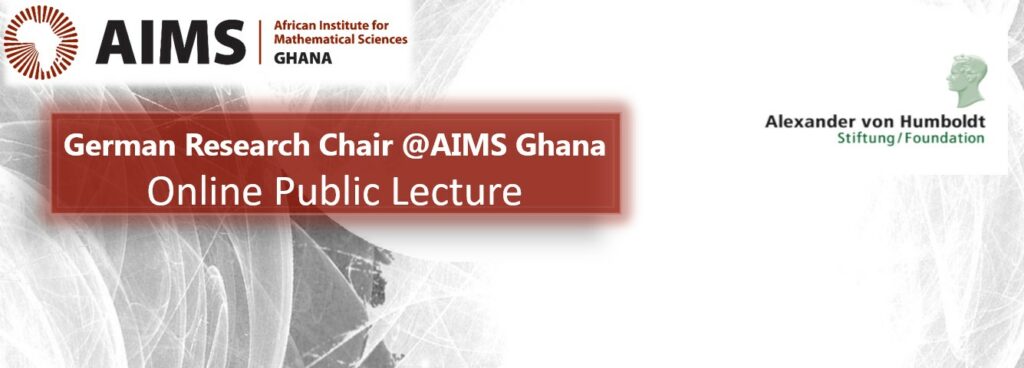

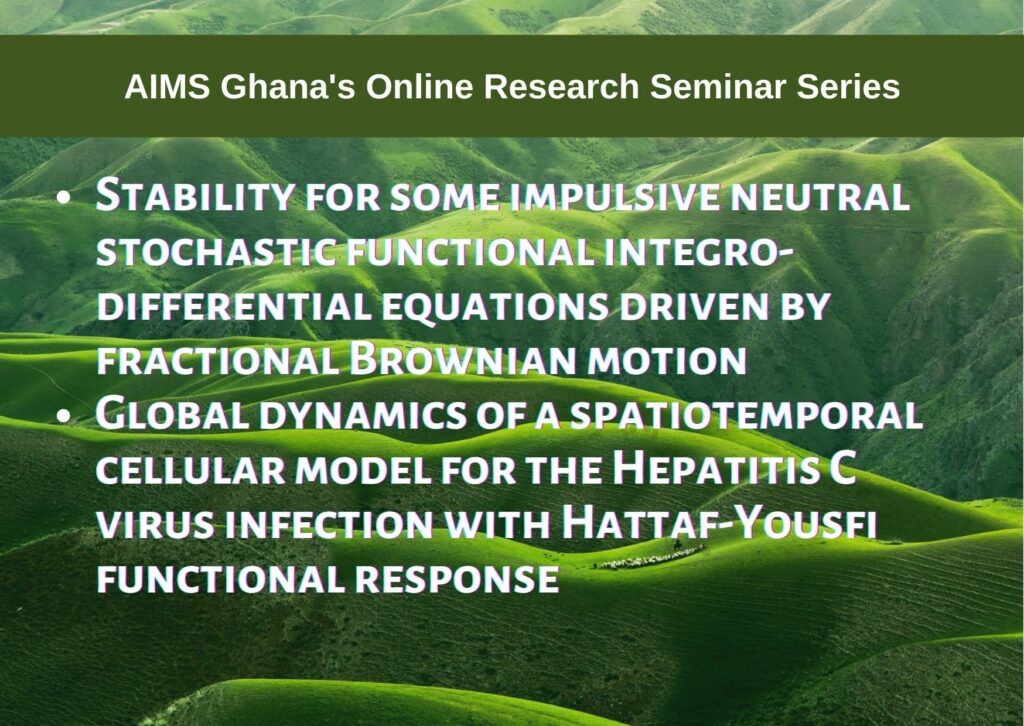
Speaker 1: Dr. Louk-Man Issaka (Department of Mathematics, Universite Gaston Berger de Saint-Louis, Senegal) Title 1: Stability for some impulsive neutral stochastic functional integro-differential equations driven by fractional Brownian motion Abstract 1: The aim of this talk is to present the stability for some integro-differential equations driven by fractional Brownian motion with noncompact semigroup in Hilbert spaces. In this
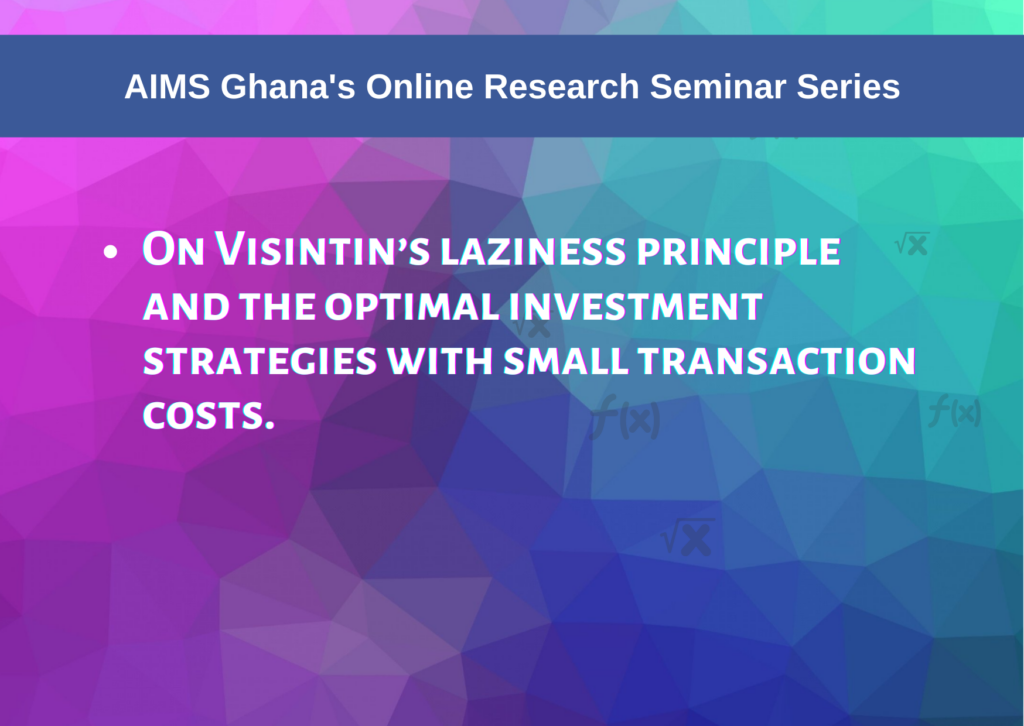
Speaker: Dr. Raouf Ghomrasni Short biography of Speaker: Dr. Raouf Ghomrasni is a probabilist. He was a lecturer at Witwatersrand University and held a research position at the African Institute for Mathematical Sciences (AIMS) in South Africa. More recently he has worked as a Statistician consultant for the World Health Organization and is currently a researcher
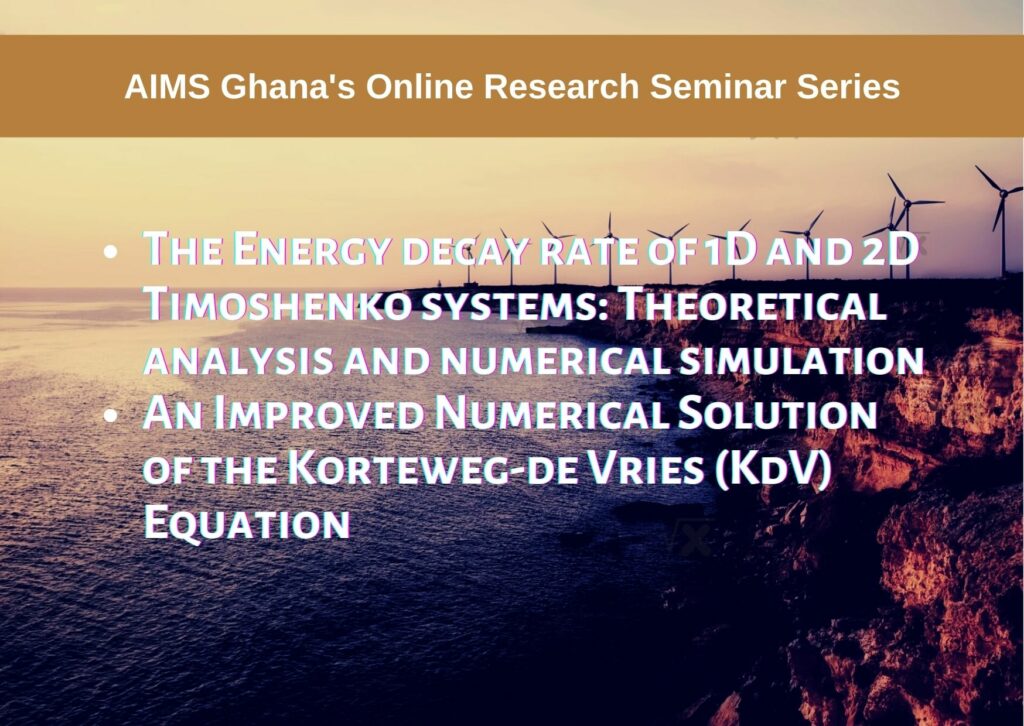
Speaker 1: Dr. Sabrine Chebbi (Department of mathematics, University of Tunis El MANAR, UTM) Title: The Energy decay rate of 1D and 2D Timoshenko systems: Theoretical analysis and numerical simulation Abstract 1: We focus on the behavior of the solutions of the Timoshenko systems in dimensions 1 and 2 using the lower bound estimates of the energy.
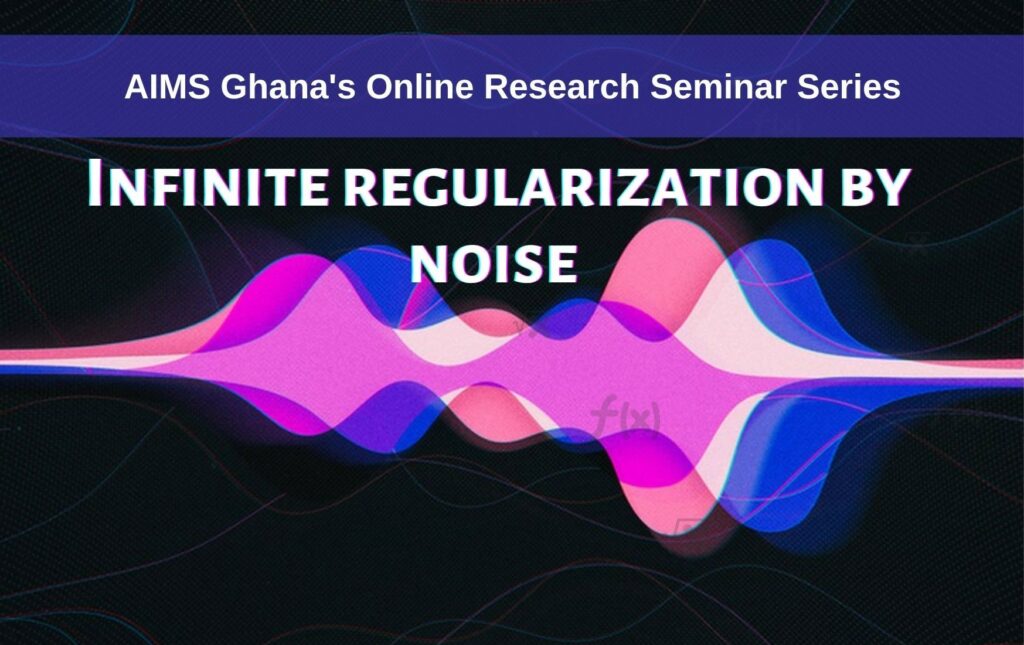
Abstract: It is a classical yet surprising result that noise can have a regularizing effect on differential equations. For example, adding a Brownian motion to an ODE with a bounded and measurable vector field leads to a well-posed equation with Lipschitz continuous flow. While the equation without noise may have none or many solutions. Classical proofsare
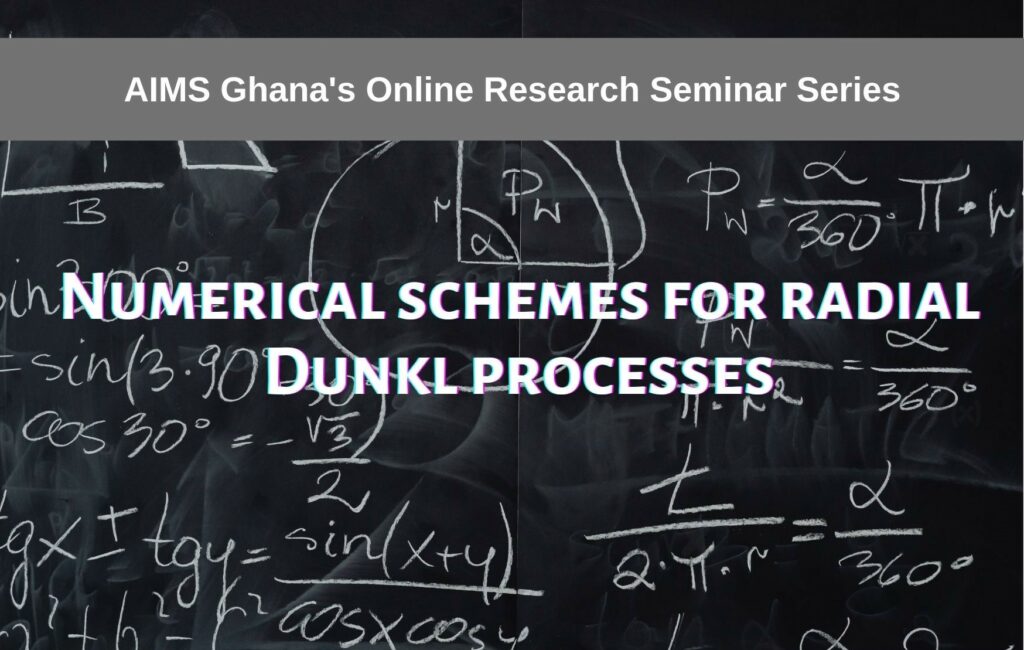
Abstract: In this talk, we consider the numerical approximation for a class of radial Dunkl processes corresponding to arbitrary (reduced) root systems. This class contains some well-known processes such as Bessel processes and Dyson’s Brownian motions. We introduce a backward and truncated Euler–Maruyama scheme, which can be implemented on a computer, and study its rate of
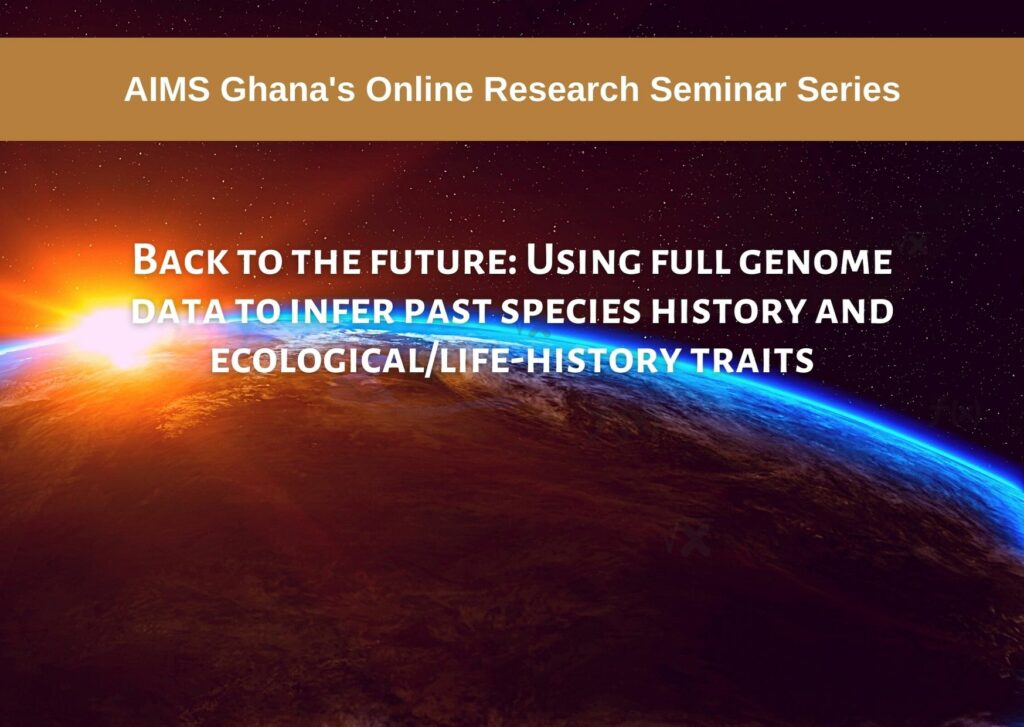
Speaker: Prof. Aurélien Tellier (Professor of population genetics, Technical University of Munich, Germany) Abstract: The field of evolutionary genetics is profoundly rooted in stochastic mathematical theory and since several years the theory has been extended to model the evolution of full genomes. Indeed, large amounts of full genome data are becoming available for human but also non-model organisms.
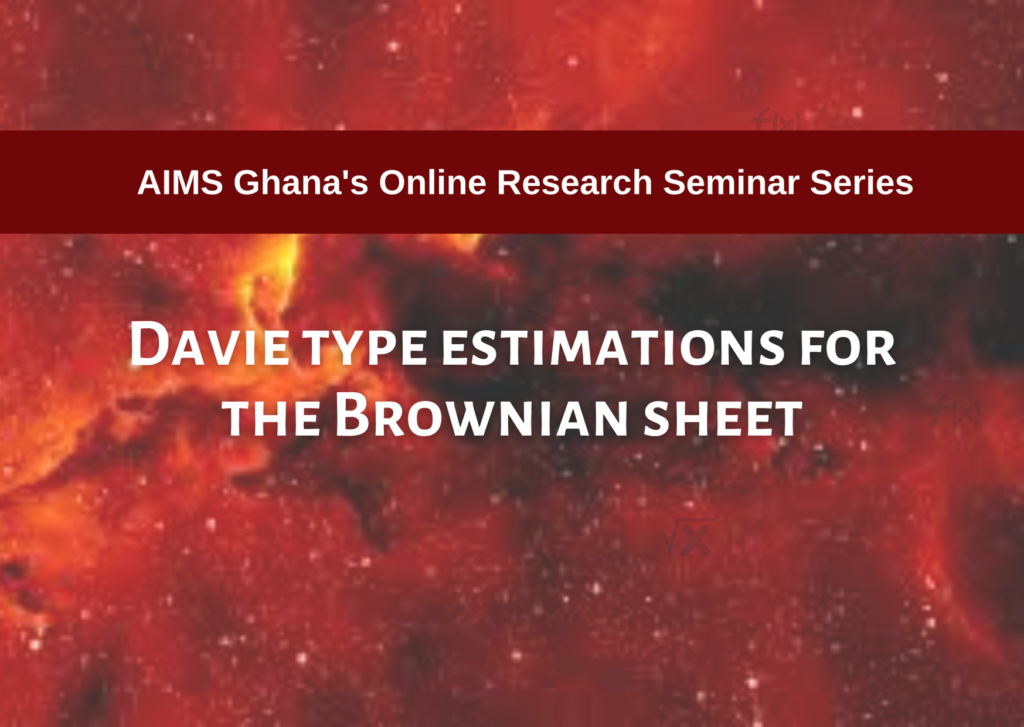
Abstract: We prove and apply a local time-space integration formula to provide several Davie type bounds for the Brownian sheet. This local time-space integration formula is similar to that obtained by Eisenbaum for the reversible semimartingales. Davie type bounds are useful to prove strong uniqueness results for stochastic differential equations with irregular drifts. Such estimates originated
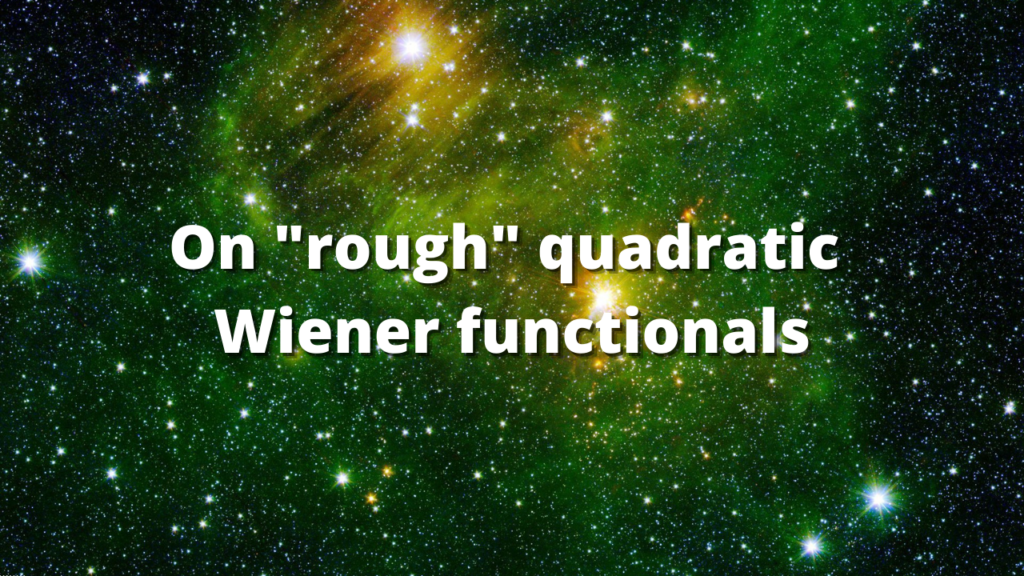
Speaker: Prof. Jiro Akahori (Professor, Department of Mathematical Sciences, Ritsumeikan University, Japan) Abstract: In this talk, the law of functionals of fractional Brownian motion, which is quadratic in an infinite-dimensional sense, and also related topics, will be discussed. We are interested in how the classical results on quadratic functionals of standard Browian motion are generalized. Applications will
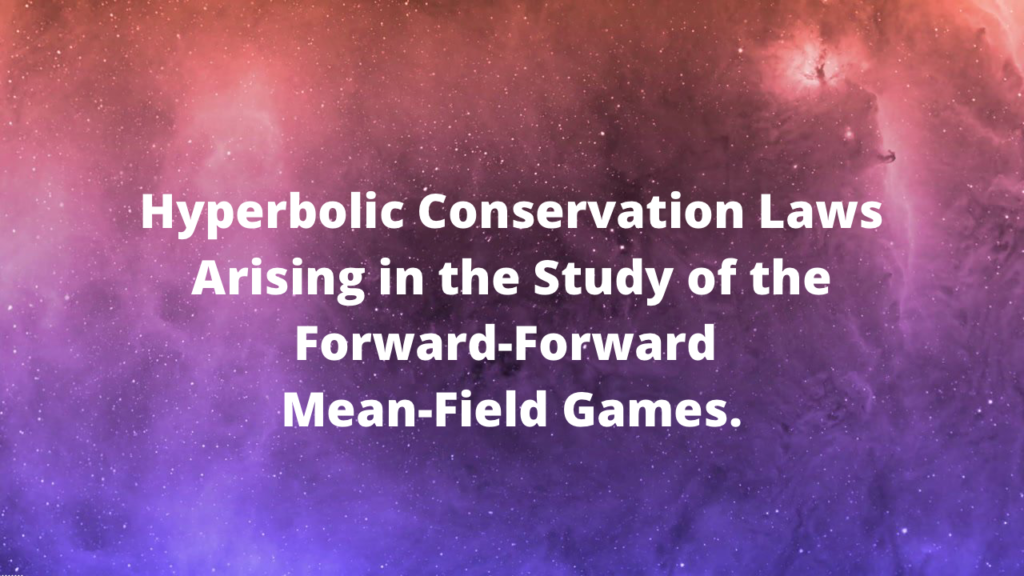
Speaker: Prof. Marc Sedjro (German Research Chair, AIMS South Africa) Abstract: In this talk, we introduce several models of the so-called forward-forward Mean-Field Games (MFGs). The forward-forward models arise in the study of numerical schemes to approximate stationary MFGs. We establish a link between these models and a class of hyperbolic conservation laws. Furthermore, we investigate the